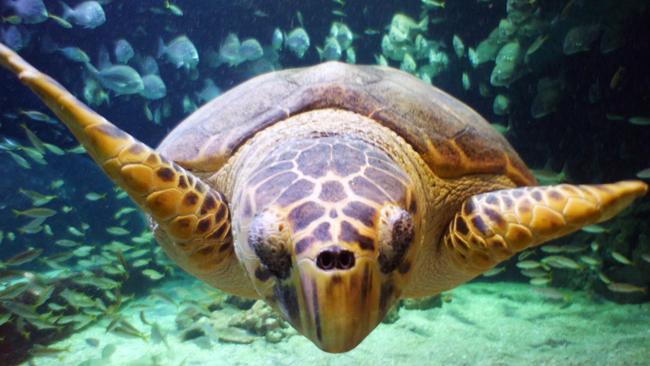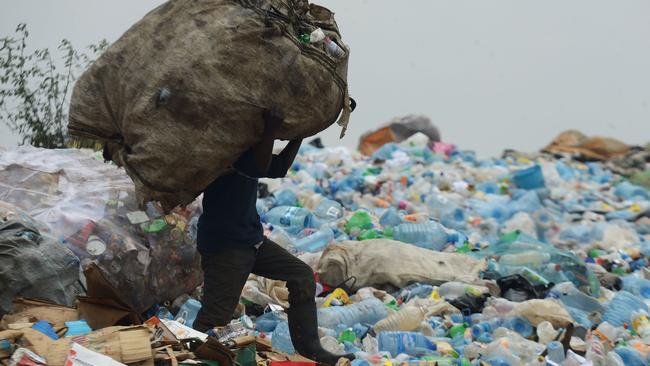Forget reuse and recycle. Let’s flat out reject plastic bags
THERE is no ‘away’ when it comes to throwing away plastic bags. Australia should take Kenya’s strong lead on banning these toxic invaders, writes Jane Fynes-Clinton.
SO simply handy it has become ubiquitous, the harsh truth is that plastic really is not fantastic.
Not in environmental terms, anyway: not those bags. Not for our land, ocean, food cycle or health.
But Kenya, a nation which manufactures plastic bags, has upped the ante this week with a big stick approach, passing laws that will hit Kenyans producing, selling or even using plastic bags with jail for up to four years or fines of up to $40,000.
The penalties might be the world’s most severe, but the East African nation joins more than 40 other countries that have banned, partly banned or taxed single use plastic bags.
And while the Kenyan environment minister says law enforcers will initially target manufacturers and suppliers, Kenya’s law allows police to go after anyone even toting a plastic bag.
The move will cost 60,000 jobs and force 176 manufacturers to close in Kenya, but is deemed so important as to be worth the cost.
What a pity we in Australia continue to dither and obfuscate.
Change is coming, but we are hastening frustratingly slowly.
National supermarket chains Coles and Woolworths announced a single-use bag ban last month, to take effect within 12 months. The changes are going to bite hard some creatures of habit: supermarkets account for doling out more than 50 per cent of the nation’s plastic bags.

More broadly, the Queensland Government will next year join South Australia, the Northern Territory, the ACT and Tasmania in a bag ban, but NSW and Victoria — the most heavily-populated states — are dragging the chain, with the NSW Government even overturning past moves by some local councils to ban bags.
Support for the plastic bag ban in Queensland is overwhelming, with more than 26,000 submissions on the Government’s discussion paper, with 95 per cent supporting the move to ban the bag.
More than 900 million single-use lightweight plastic bags are used in Queensland each year and the facts are in. Bags are made of propylene, a simple constituent of petroleum. Mother Nature does not like things like these massive, man-made molecules with extremely strong bonds.
The world uses a trillion of those single-use plastic bags, which are so problematic they are not allowed in our recycle bins.
They never biodegrade but, in our oceans, they break up due to UV light and motion of wind and water. But even when they break down to molecular or nanoparticle levels, they are still plastic.
There are said to now be 46,000 microplastic fragments floating in every square kilometre of the world’s oceans, with eight million tonnes of plastic added every year.
It is frightening.

The ocean plastics absorb contaminants from the surrounding water, making the surface of a shopping bag hundreds of thousands of times more toxic than the surrounding sea. Then small critters eat the tiny particles of plastic, and bigger ones eat the little ones and so on.
Eventually, the discarded plastic comes back to people and they eat it with a knife and fork.
More than 70 per cent of loggerhead turtles found dead in Queensland have ingested plastics. Plastic in the ocean kills more than a million birds and 100,000 sea mammals each year.
We throw rubbish away, but there is no “away”. It simply does not exist.
While any move from plastic shopping bags is commendable, it also puts parallel plastic contradictions into sharp relief: why are there still rolls and rolls of flimsy plastic bags available in the fruit and veg aisles of supermarkets?
And why is there still an alley full of plastic bags of all sizes for sale? And neighbouring aisles that house slabs of those single-use environmental destroyers, plastic water bottles, for a pittance?
Why do whitegoods and furniture still come slathered in unnecessary plastic and other packaging with no retailer return and reuse plans?
Australians have shown themselves to be such good recyclers that the industries handling the turned over waste are flooded and unable to keep up.
But where plastic bags are concerned, we must do what we know to be true: there is no real recycle or reuse. There is only reject.
Dr Jane Fynes-Clinton lectures in journalism at the University of the Sunshine Coast.
Originally published as Forget reuse and recycle. Let’s flat out reject plastic bags
